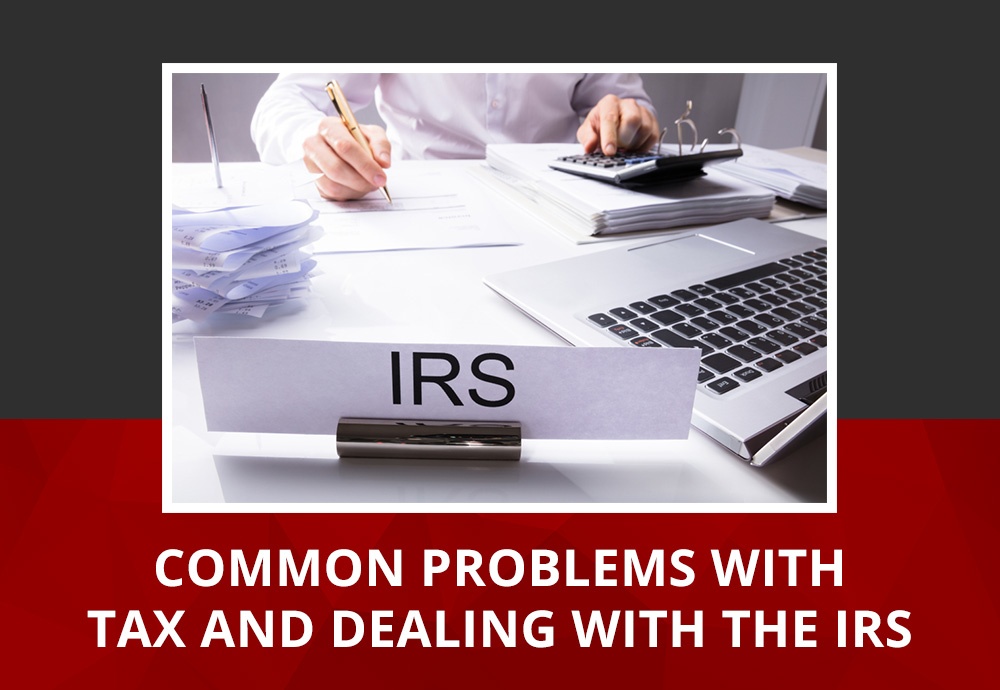Common Tax Problems And Dealing With The IRS

Filing taxes is the responsibility of every working individual and business owner to stay compliant and receive refunds on time. However, sometimes there are issues with tax preparation and filing returns that can be tricky to solve.
So, to help you prepare your taxes correctly, Bible Harris Smith, P.C. has outlined three of the most common problems people face when filing and has presented solutions to overcome them with relative ease.
1. The client received a notice from the IRS
The first thing one should do is not panic. Nobody enjoys receiving an IRS notice, but there are many reasons for receiving it. Often, additional information is needed, or if a problem exists, it’s usually quickly resolved.
Firstly, you should read the notice and compare it to the tax return. Next, refer to the returned work papers to determine if the notification is accurate. If you are unsure, reach out to your CPA to get their take on the matter and provide a full copy of the notice (it could be front and back of the pages).
Discuss the issue with your CPA to be sure you fully understand what’s getting requested. It will enable you to provide good information to your CPA to assess if the problem is legitimate or if they need to get in touch with the IRS to resolve an error.
If they need to speak with the IRS, they will have to get a power of attorney (Form 2848) signed by you, the client, authorizing the government agency to speak with them.
Remember to be patient as all issues with the IRS take time, and since the pandemic began, these issues are taking even longer.
2. The client forgot to provide vital information to their CPA
The best way to avoid problems here is to be thorough in the first place. Most CPA firms send out a tax season organizer or checklist to complete and return. Some of these can be daunting, but they are essential.
The Q&A section at the beginning of the checklist is to trigger your memory of new or unusual events that may have occurred during the year that could affect a tax return. Reading through and completing these questions is beneficial to both the taxpayer and the tax preparer.
If we’re dealing with an organizer, the rest typically shows the information and amounts from the prior year. It serves as a checklist to ensure you have everything you had last year or indicates you don’t have it again this year.
Completing the organizer to the best of your ability will save tax preparers time later in following up with questions and should allow for a complete tax return to be prepared.
3. The client owes money but doesn’t have the cash flow to pay the total amount
Again, don’t panic. Pay as much as you can by the due date. If you’re extending, the voucher has a place to list the amount outstanding and how much will get paid.
The IRS will charge interest on any amounts paid past the deadline; that is non-negotiable. They may also charge a penalty, but in good faith, they may waive the liability if you owe more after the deadline.
If you know that you owe a decent amount and believe you’ll have the money to pay shortly, you can set up an online payment plan with the IRS. Short-term plans can typically be applied online, provided the payment period is less than a hundred and twenty days and the amount owed is less than $100K in combined tax, penalties, and interest.
Long-term plans involve periods to repay that are more than a hundred and twenty days and include amounts less than $50K. A setup fee may apply for long-term plans if approved. If your plan is not approved, you may be able to apply for an installment agreement using form 9465, and a setup fee may apply.
We hope these answers made you feel more confident to move ahead with your tax challenges. If you have any questions about taxes, reach out to Bible Harris Smith, P.C. As a licensed CPA firm in Knoxville, TN, we can help you with your tax needs. We have been rendering professional, responsive, and quality services since 1949.
Our services include small business accounting, bookkeeping, income tax planning/ preparation, assurance services, estate planning, and QuickBooks solutions.
We serve clients across the Greater East Tennessee Area, including Knoxville, Oak Ridge, Maryville, Sevierville, Morristown, and Lenoir City. We also offer our services to numerous clients in Georgia and other southeastern states.
To learn more about our services, please click here or get in touch with us by clicking here.